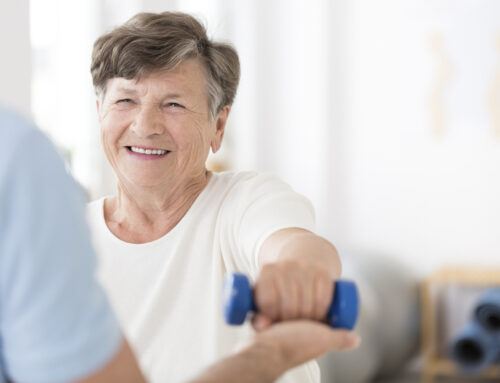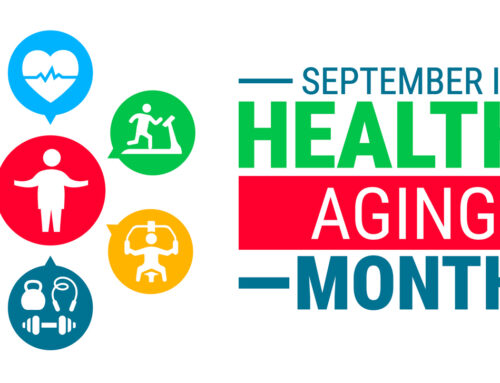The dreaded hot flashes, irritability, changes in sleep patterns and weight gain – these are all signs of menopause or perimenopause (pre-menopause). If you are a woman over the age of 40, you may already be experiencing some of these symptoms. If you are a man, don’t stop reading. You could benefit from understanding how hormonal changes can wreak havoc with your loved one’s well-being. Menopause is one of those subjects that hasn’t always been considered a “proper” topic for discussion. Probably because most doctors were male and had no real understanding of how debilitating the effects can be to some women. Fortunately, that is no longer the case and there are numerous places to find information and possible solutions. FirstLantic is here to help by highlighting some natural remedies as well as diving into other options such as hormone replacement therapy.
Diet Modifications
When possible, it is always preferable to try to help your body deal with changes through diet and exercise. So, what are some of the best foods to eat to help reduce some of the worst symptoms of menopause? Believe it or not, many of the foods that are good for your overall health are also the same foods that can help reduce symptoms like hot flashes. Eating fish that is high in Omega 3s such as wild salmon, albacore tune, arctic char, sardines, rainbow trout and blue fish can help lift your mood and lower inflammation. You can also try a high-quality fish oil supplement if you can’t always get two servings a week of fish.
Fruits and vegetable are also great sources of phytonutrients and some studies have found that women who eat plenty of vegetables (lentils, legumes and beans) and melon, strawberries, pineapple, red grapes and mangos reported fewer hot flashes. Soy can also be helpful in reasonable amounts. There are many conflicting reports about the benefits and the downsides of soy, but some research has shown things like soy nuts, tofu, miso and soy milk can help reduce hot flashes and also can help with bone loss and heart disease. It is not recommended to take soy in powder or tablet form. Whole grains can also be beneficial in boosting energy reducing stress and supporting gut health. You can get whole grains from foods such as oatmeal, barley, corn, and brown and wild rice.
Vitamins and Probiotics
If you are not getting enough vitamins from your food sources, then try supplements like Vitamin D (supports mood and immune system health), B vitamins (especially B12) can help with mood changes and vitamins A, C and E help neutralize free radical damage to your cells. If are not able to incorporate enough of the recommended doses through foods, then you should take a daily multivitamin. Probiotics are also important because they can aid with weight loss, immune regulation and cholesterol balance. You can find probiotics in live-culture yogurt and miso, but it still might be necessary to a supplement every day to ensure that you get the right amount.
Exercise
In our blog last week we talked about the ongoing benefits of yoga because of its’ ability to help elevate your mood, build muscle strength and aid with sleep quality. Yoga also helps some women with hot flashes. If yoga is not your thing, then just take a walk outside, breathe deeply and enjoy some fresh air which can also help elevate your mood.
Hormone Therapy
There has been a lot of controversy about hormone replacement therapy and the possible serious side effects such as breast cancer and heart disease. However, studies show that the risks vary depending on age. For example, if therapy is started before the age of 60 or within 10 years of menopause, the benefits appear to outweigh the risks. That said, the first step is to get tested and speak with your doctor or several doctors to get a few opinions on what is best for you. The two primary types of hormone replacement therapy include estrogen therapy or combination therapy (using both estrogen and progestin). These therapies can be delivered through pills, patches or a topical cream. Again, hormone therapy is not for everyone including women who have had blood clots, breast, uterine or endometrial cancer, heart or liver disease. It is best to explore hormone therapy only if you have already tried diet and exercise changes and you haven’t had success. Click here for more information >
Let’s face it, going through menopause is no fun but it is a part of life. Fortunately, it is no longer a taboo subject and women shouldn’t feel embarrassed or uncomfortable discussing their options. And for those men that are still reading this, try putting on two wool sweaters in 90-degree weather if you really want to experience what hot flashes are like!
Additional Informational Sources:
https://shop.goop.com/shop/products/younger
https://www.nhlbi.nih.gov/files/docs/pht_facts.pdf
https://www.everydayhealth.com/news/10-essential-facts-about-menopause/
https://www.healthline.com/health/menopause/menopause-facts
Click here to read more FirstLantic blogs>
 AVAILABLE 24 HOURS A DAY/7 DAYS A WEEK
AVAILABLE 24 HOURS A DAY/7 DAYS A WEEK Careers
Careers







